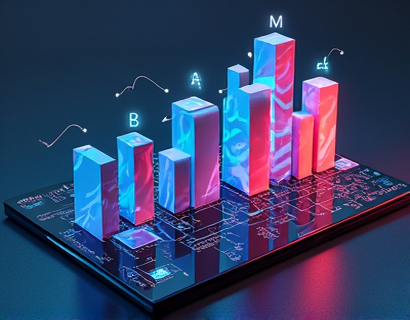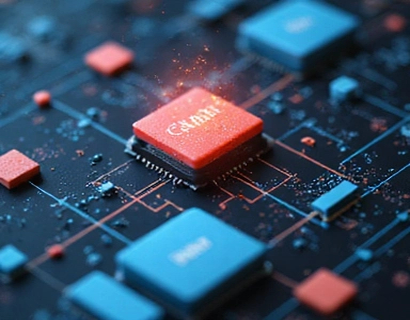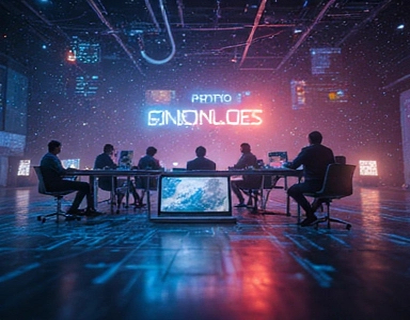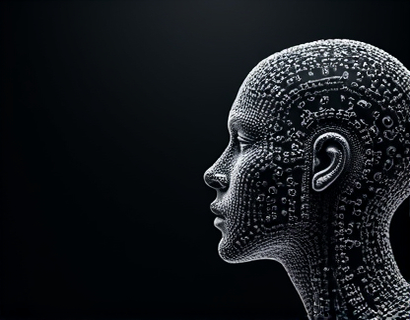Smart Contracts and Management Tools: Revolutionizing Governance for Enhanced Democracy and Participation
In recent years, the intersection of technology and governance has given rise to innovative solutions aimed at transforming traditional democratic processes. Among these, smart contracts and advanced management tools stand out as pivotal elements in creating a more accessible, efficient, and participatory form of governance. This article delves into the transformative potential of these technologies, exploring how they can streamline decision-making, enhance transparency, and boost community engagement, ultimately fostering a more universal and inclusive democracy.
The Role of Smart Contracts in Governance
Smart contracts are self-executing contracts with the terms of the agreement directly written into code. They run on blockchain technology, a decentralized and immutable ledger that ensures transparency and security. In the context of governance, smart contracts can automate and enforce the execution of agreements and policies, reducing the need for intermediaries and minimizing the potential for human error or manipulation.
One of the most significant advantages of smart contracts in governance is their ability to automate complex processes. For instance, in the realm of public procurement, smart contracts can streamline the bidding and awarding process, ensuring that all steps are transparent and adhered to the predefined rules. This not only speeds up the process but also reduces the risk of corruption and favoritism.
Enhancing Transparency Through Blockchain
Transparency is a cornerstone of democratic governance, and blockchain technology, which underpins smart contracts, plays a crucial role in achieving this. The immutable nature of blockchain ensures that once a transaction or contract is recorded, it cannot be altered or deleted. This provides a tamper-proof record of all governance activities, from budget allocations to policy implementations.
For citizens, this means greater access to information about how their government operates. Transparent governance builds trust and accountability, as citizens can verify the execution of policies and the use of public funds in real-time. This level of transparency is particularly valuable in combating corruption and ensuring that public resources are used effectively and ethically.
Boosting Community Engagement with Smart Contracts
Engagement is a critical component of participatory governance. Smart contracts can facilitate more inclusive and direct forms of citizen participation by enabling mechanisms such as digital referendums and decentralized decision-making platforms. These tools allow citizens to vote on specific issues or proposals, with the results being automatically recorded and executed.
For example, a local government could use a smart contract-based platform to conduct a community vote on a new public project. Citizens would submit their votes, and once the voting period ends, the smart contract would automatically tally the results and implement the chosen option. This process not only increases participation but also ensures that the outcome is fair and verifiable.
Innovative Management Tools for Effective Governance
Beyond smart contracts, innovative management tools are essential for optimizing governance processes. These tools leverage data analytics, artificial intelligence, and user-friendly interfaces to enhance the efficiency and effectiveness of government operations. One such tool is a decentralized governance platform that integrates various smart contract functionalities with a user-friendly interface for stakeholders.
These platforms can centralize information from different government departments, providing a single point of access for citizens and officials. This integration facilitates better coordination and collaboration, reducing bureaucratic hurdles and improving service delivery. For instance, a citizen seeking a permit or license can submit all required documents through a streamlined digital process, with the smart contracts ensuring that all conditions are met before approval is granted.
Data-Driven Decision Making
Data analytics is another critical aspect of modern governance tools. By harnessing big data and advanced analytics, governments can gain insights into citizen needs, policy impacts, and resource allocation. Smart contracts can be designed to collect and process data automatically, feeding it into analytics tools for real-time monitoring and analysis.
This data-driven approach enables more informed and responsive governance. For example, a city government can use analytics to identify areas with high crime rates and allocate police resources accordingly. Smart contracts can automate the redistribution of resources based on real-time data, ensuring that interventions are timely and effective.
Fostering Decentralized Autonomy
Decentralization is a key principle of smart contract-based governance, promoting autonomy and reducing the concentration of power. By distributing control across a network of nodes, smart contracts ensure that no single entity has undue influence over governance processes. This decentralized approach not only enhances security but also empowers communities to take a more active role in decision-making.
Decentralized autonomous organizations (DAOs) are a prime example of this concept. A DAO is a community-driven organization governed by smart contracts on a blockchain. Members of the DAO can propose, vote on, and execute decisions collectively, without the need for a central authority. This model can be applied to various sectors, from non-profits to public services, fostering a more democratic and participatory governance structure.
Challenges and Considerations
While the potential of smart contracts and management tools in governance is significant, several challenges must be addressed to ensure their successful implementation. Technical barriers, such as the need for robust infrastructure and cybersecurity measures, are paramount. Additionally, there is a need for regulatory frameworks that support innovation while protecting citizens' rights and data privacy.
Education and digital literacy are also crucial. For these technologies to be effective, citizens and government officials must understand how to use them. Initiatives to promote digital literacy and provide training can help bridge the knowledge gap and ensure broad adoption.
Case Studies and Real-World Applications
Several real-world examples demonstrate the practical application and benefits of smart contracts and management tools in governance. Estonia, for instance, has implemented a comprehensive digital governance system that uses blockchain for secure and transparent record-keeping. From electronic voting to digital identity verification, Estonia's system showcases how technology can enhance governance efficiency and citizen engagement.
Another example is the use of smart contracts in the management of public utilities. In some cities, smart contracts have been used to automate the billing and payment processes for services like water and electricity. This not only reduces administrative costs but also ensures that payments are processed accurately and promptly.
Conclusion
The integration of smart contracts and innovative management tools represents a significant leap forward in governance, offering a pathway to more transparent, efficient, and participatory democratic processes. By automating and securing governance functions, these technologies can reduce corruption, enhance accountability, and foster greater citizen engagement. As more individuals and organizations explore and adopt these solutions, the potential for a more inclusive and effective democracy becomes increasingly tangible.
Embracing these advancements is not just a technological imperative but a moral one, as it aligns with the fundamental principles of democracy: transparency, accountability, and the empowerment of the people. The future of governance lies in harnessing the power of smart contracts and management tools to create a more just and participatory society.











































